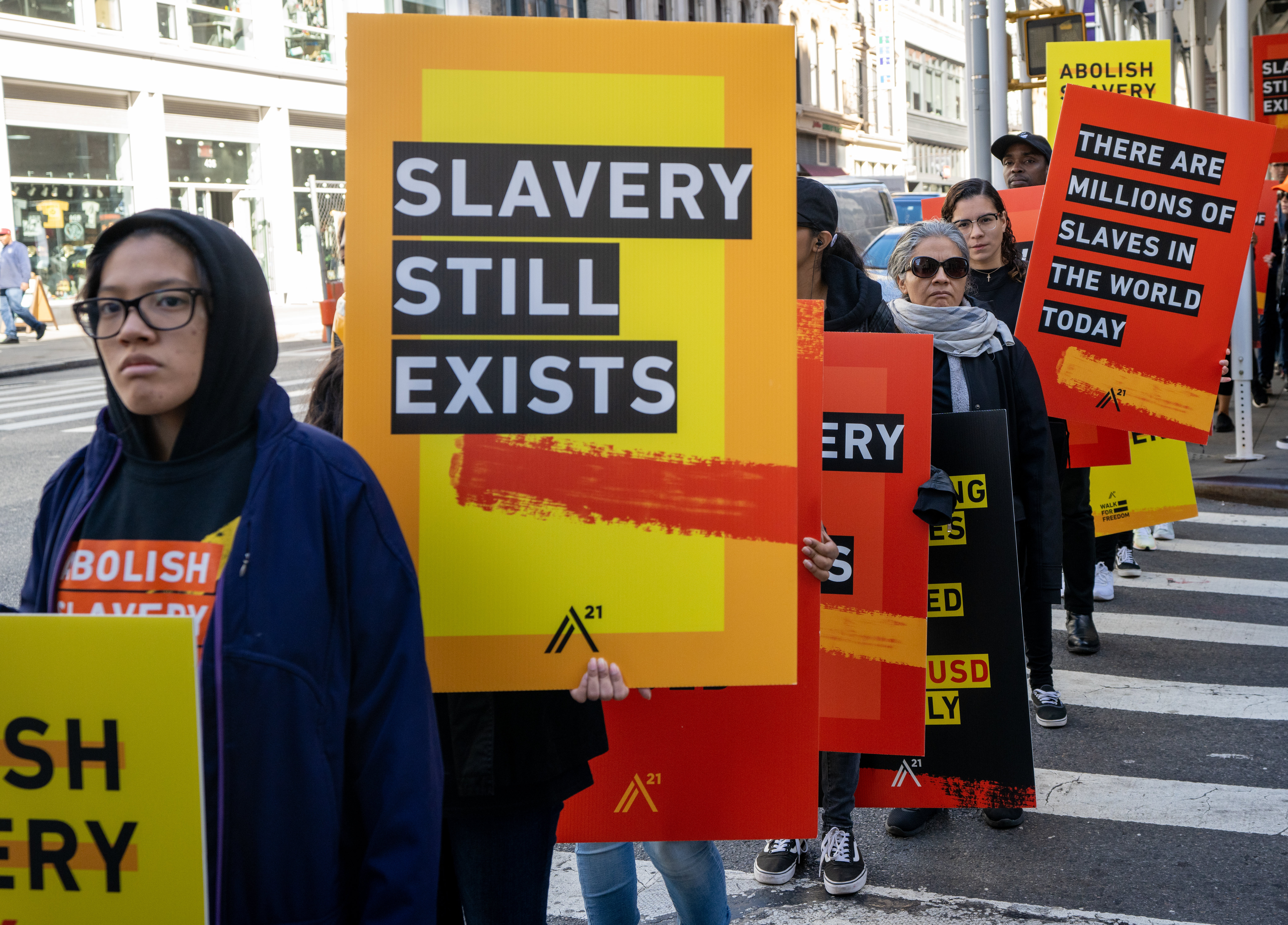
The Rt Revd Vivienne Faull, Bishop of Bristol and Eleanor Lyons, Independent Anti-Slavery Commissioner share their thoughts on the modern slavery amendment to the Rwanda Bill. Their Op-Ed appeared in the 8 March edition of the Church Times.
Modern slavery is a crime that affects every community, but often remains hidden from public view. Everyday transactions that offer cheaper food, a manicure, or a car wash may well rely on the exploitation of someone, somewhere. Victims are adults and children, people from the UK, and people who have been trafficked from elsewhere. This is an issue that can affect everyone.
And the problem is growing here in the UK. The number of victims identified grows every year; criminal gangs around the country are exploiting vulnerable adults, children, and young people. That is why the 2015 Modern Slavery Act was so important: a landmark piece of legislation and a sign of strong political will to tackle this crime.
But recent legislation threatens to undermine this progress. The Nationality and Borders and Illegal Migration Acts make it much harder for some victims of modern slavery to get the support that they need. Victims can be trafficked here to be exploited. We must identify and support them to prevent re-trafficking and focus on going after the criminal gangs who exploit them.
Our response to modern slavery must recognise that exploitation of this kind is, first and foremost, an issue of safeguarding, not immigration. Survivors of this crime are being caught in the crossfire as the Home Office seeks to reduce the number of dangerous Channel crossings, and are increasingly accused of abusing the mechanism for personal gain.
There is very little evidence, however, that the UK’s world-leading modern-slavery protection systems are being subject to widespread or systematic abuse by asylum- seekers.
Potential victims of modern slavery are identified by trained first responders. The overwhelming majority of those who enter the UK’s modern-slavery referral mechanism are found by the Home Office to be genuine victims, and only seven per cent of people who arrive in the UK via a small boat are referred.
In fact, British people are the most common nationality to be referred as a potential victim of this crime. We all want to see an end to dangerous Channel crossings, but the evidence that the UK’s modern-slavery laws are being systematically abused simply does not exist.
We believe that many people in this country would want to help rather than criminalise people who have been coerced into sex work or forced to carry drugs. Yet, under the Government’s plans in the Safety of Rwanda Bill, victims of modern slavery who arrive by small boats, or other “irregular means”, will lose their protections and be sent to Rwanda, even if they have been trafficked against their will.
The Global Slavery Index estimates that the rate of modern slavery in Rwanda is more than twice as high as the rate in the UK. And the Index highlights concerns with the Rwandan government’s approach to this issue.
The UK is a signatory to the Council of Europe Convention on Action Against Trafficking in Human Beings, which provides the framework for support. Rwanda is not a signatory, which makes it difficult to understand what the process for recognising victims’ rights will be.
What will happen to those who are already gaining access to support through the UK’s modern-slavery support mechanisms? When it becomes law, the Safety of Rwanda Bill will apply to those who have already been in the UK’s modern-slavery system for some months. Some may have been exploited in the UK itself. Their support will be withdrawn, and we are without assurance that it will be replicated in Rwanda.
We all want to see an end to dangerous Channel crossings, but one thing is clear: the Safety of Rwanda Bill, as currently drafted, fails to protect victims of modern slavery. That is why we believe that it must be amended.
We are working with colleagues from all political parties to improve the Bill so that no one who is thought to be a victim of modern slavery could be removed to Rwanda, at least before a conclusive decision is made on their case, or without assessing what it means for their safety. Such consideration for the victims of a terrible crime is the least that we can do.
On Wednesday evening (6 March), peers voted for an amendment that would seek to protect victims of modern slavery and human trafficking from being removed to Rwanda without their consent. If the Bill returns to the House of Commons, as expected, we urge MPs not to remove the amendment. If they do, they will jeopardise the UK’s place as a world leader in tackling modern slavery.
Image credit: Victoria Pickering